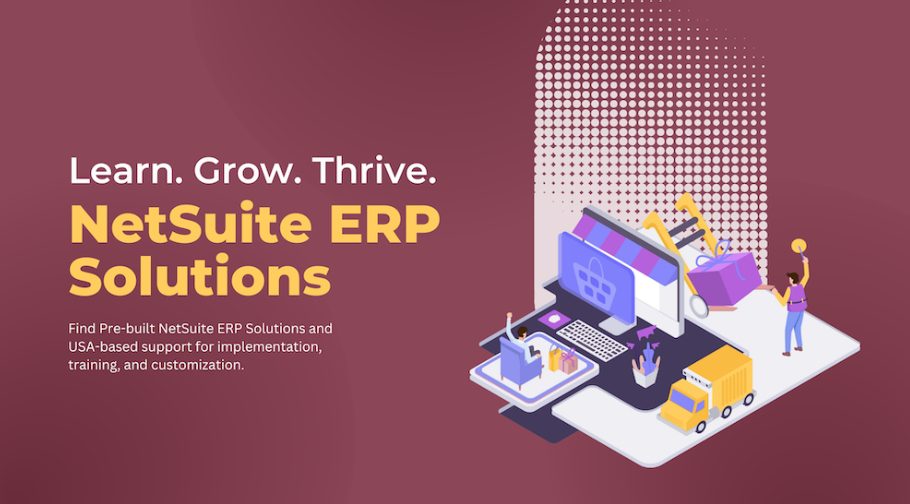NetSuite in the Cloud: Why Security and Compliance Matter

NetSuite is a powerful cloud-based enterprise resource planning (ERP) software that has become increasingly popular in recent years due to its ease of use, flexibility, and scalability. However, as with any cloud-based software, security and compliance are critical considerations for businesses that rely on NetSuite to manage their operations. In this blog post, we will explore the importance of security and compliance in cloud computing, specifically focusing on NetSuite’s cloud-based architecture, security features, compliance certifications, data protection and privacy measures, and the business benefits of using a secure and compliant ERP system like NetSuite.
NetSuite’s Cloud-Based Architecture
NetSuite is built on a cloud-based architecture, which means that all of its data and functionality are stored in the cloud, accessible via the internet. This architecture offers several benefits over traditional on-premises ERP systems, including lower upfront costs, increased scalability, and enhanced accessibility. Cloud-based ERP systems also typically offer greater flexibility, allowing businesses to customize and configure the software to meet their specific needs. However, cloud-based systems also require a higher level of security to ensure that data is protected against unauthorized access, data breaches, and other security threats.
NetSuite’s Security Features
NetSuite has multiple layers of security architecture designed to protect against unauthorized access, data breaches, and other security threats. The software uses industry-standard encryption algorithms to protect data in transit and at rest, ensuring that sensitive data is always secure. NetSuite’s data centers are also secured with physical security measures, such as biometric access controls and 24/7 surveillance, to prevent unauthorized access.
NetSuite’s application security controls are designed to prevent unauthorized access to the software’s functionality. For example, the software includes access controls that allow administrators to define roles and permissions for each user, ensuring that users only have access to the functionality they need to perform their job functions. NetSuite also includes two-factor authentication (2FA), which requires users to provide a second form of authentication, such as a text message or biometric scan, in addition to their password, to access the software.
NetSuite’s Compliance Certifications
NetSuite is certified compliant with several security and compliance standards, including the Service Organization Control (SOC) 2 Type II, Payment Card Industry Data Security Standard (PCI DSS), and Health Insurance Portability and Accountability Act (HIPAA). These certifications demonstrate that NetSuite has implemented rigorous security and compliance controls to protect customer data and ensure that the software meets the requirements of specific industries and regulatory bodies.
NetSuite’s compliance certifications are obtained through independent audits conducted by third-party auditors, ensuring that NetSuite’s security and compliance controls are tested and validated by unbiased experts. These certifications are important for businesses that must comply with industry-specific regulations, such as healthcare or finance, as they ensure that the software meets the requirements of these regulations.
Data Protection and Privacy
NetSuite takes data protection and privacy seriously and has implemented several measures to protect customer data. The software includes data encryption, access controls, and monitoring and logging to ensure that data is protected against unauthorized access and misuse. NetSuite also offers data backups and disaster recovery options, ensuring that customer data is always available and protected in the event of an outage or disaster.
NetSuite also complies with several data protection and privacy regulations, such as the General Data Protection Regulation (GDPR), which governs the collection, use, and storage of personal data within the European Union. NetSuite’s compliance with GDPR and other data protection regulations ensures that customer data is handled in a transparent and ethical manner, protecting the privacy and rights of individuals.
Business Benefits of NetSuite’s Security and Compliance
Using a secure and compliant ERP system like NetSuite offers several benefits to businesses, including:
- Ensuring Data Protection and Privacy: Businesses that use NetSuite can rest assured that their data is protected against unauthorized access, data breaches, and other security threats. NetSuite’s encryption, access controls, and monitoring and logging capabilities ensure that customer data is protected at all times, helping to build trust with customers and stakeholders.
- Meeting Regulatory Requirements: Many industries are subject to specific regulations that govern how they collect, use, and store data. By using a compliant ERP system like NetSuite, businesses can ensure that they are meeting these regulatory requirements, avoiding potential fines or legal issues.
- Reducing Risk and Liability: Data breaches and other security incidents can be costly and damaging to a business’s reputation. By using a secure and compliant ERP system like NetSuite, businesses can reduce their risk and liability, ensuring that they are protected against security incidents and other potential threats.
- Enhancing Efficiency and Productivity: NetSuite’s cloud-based architecture and advanced features can help businesses streamline their operations, automate key processes, and improve efficiency and productivity. By using NetSuite, businesses can focus on their core operations, rather than worrying about IT infrastructure and security issues.
- Improving Customer Satisfaction: By using NetSuite’s CRM and other customer engagement features, businesses can improve customer satisfaction and retention rates. The software allows businesses to manage customer data, automate sales processes, and improve customer engagement and support, leading to increased customer loyalty and revenue.
Why Choose Anchor Group for NetSuite Implementation?
Anchor Group is a leading choice for NetSuite implementation due to their extensive experience and proven track record of success. As a certified NetSuite Alliance Partner, they have a team of skilled professionals who possess in-depth knowledge of the platform and its capabilities. Their commitment to excellence ensures that clients receive the most effective and efficient solutions to optimize their business operations. Furthermore, Anchor Group’s personalized approach to project management ensures that each client receives tailored support throughout the implementation process, guaranteeing a smooth transition to the new system.
In addition to their technical expertise, Anchor Group stands out for their dedication to client satisfaction. They invest time in understanding each business’s unique requirements and challenges, enabling them to design a customized NetSuite solution that aligns with the client’s objectives. By offering ongoing support and training, Anchor Group ensures that businesses continue to reap the benefits of their NetSuite investment long after implementation is complete. Choosing Anchor Group for your NetSuite partner not only guarantees a seamless transition but also positions your company for sustained growth and success in the competitive business landscape.
Conclusion
In conclusion, NetSuite is a powerful cloud-based ERP system that offers many benefits to businesses, including enhanced scalability, flexibility, and accessibility. However, as with any cloud-based software, security and compliance are critical considerations for businesses that rely on NetSuite to manage their operations. By using NetSuite, businesses can ensure that their data is protected against unauthorized access and data breaches, meet regulatory requirements, reduce risk and liability, improve efficiency and productivity, and enhance customer satisfaction and loyalty.



